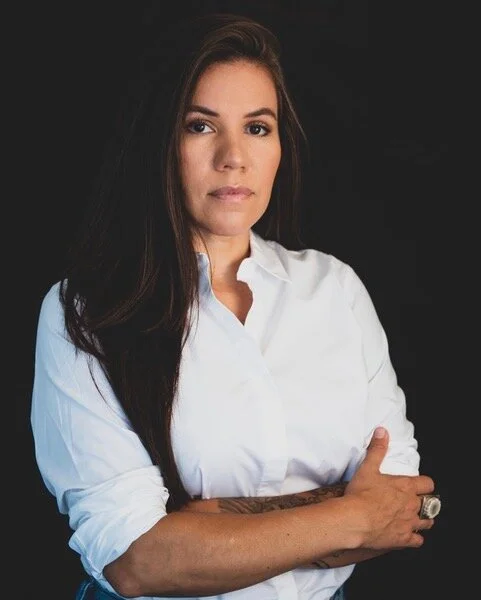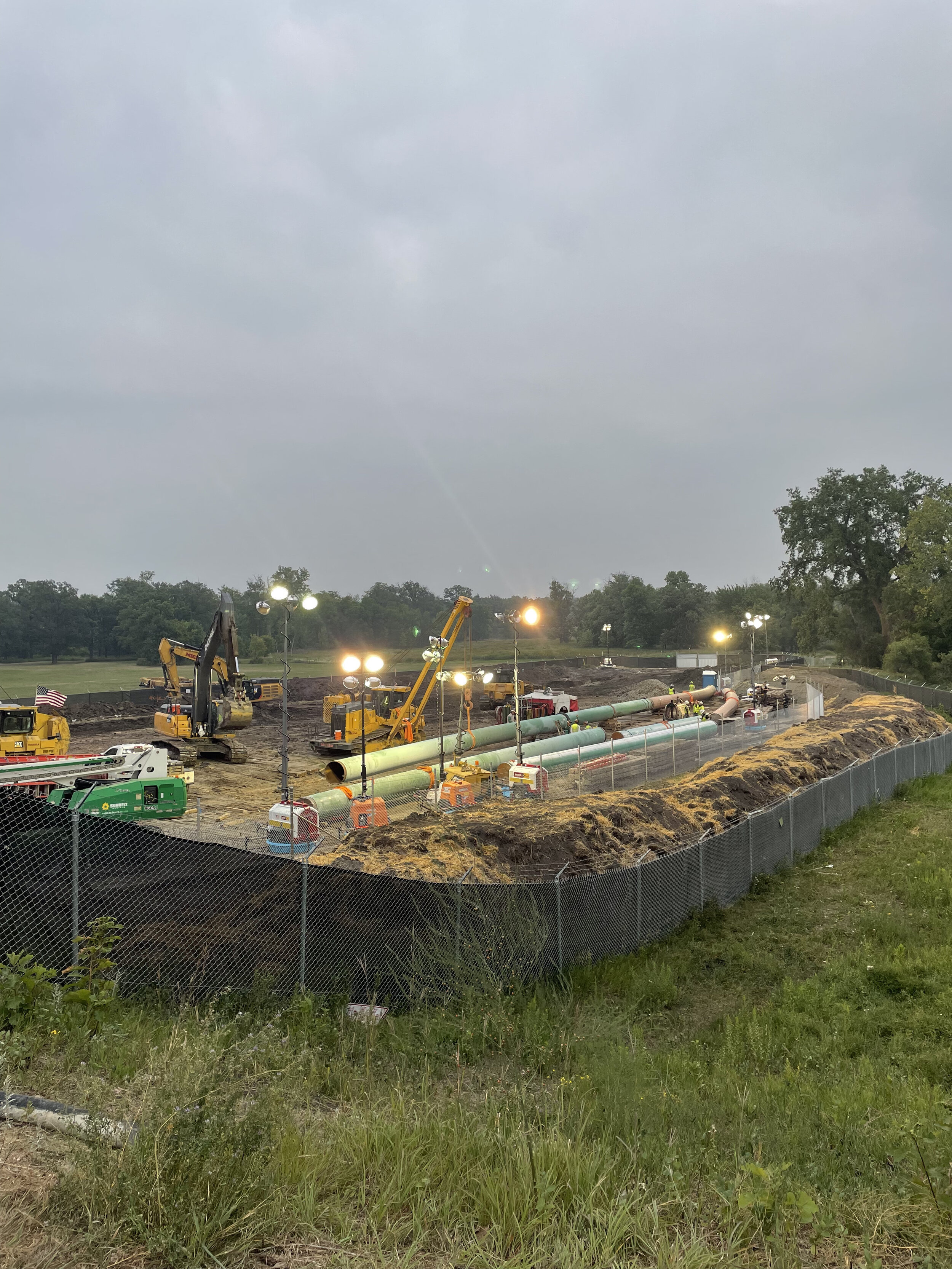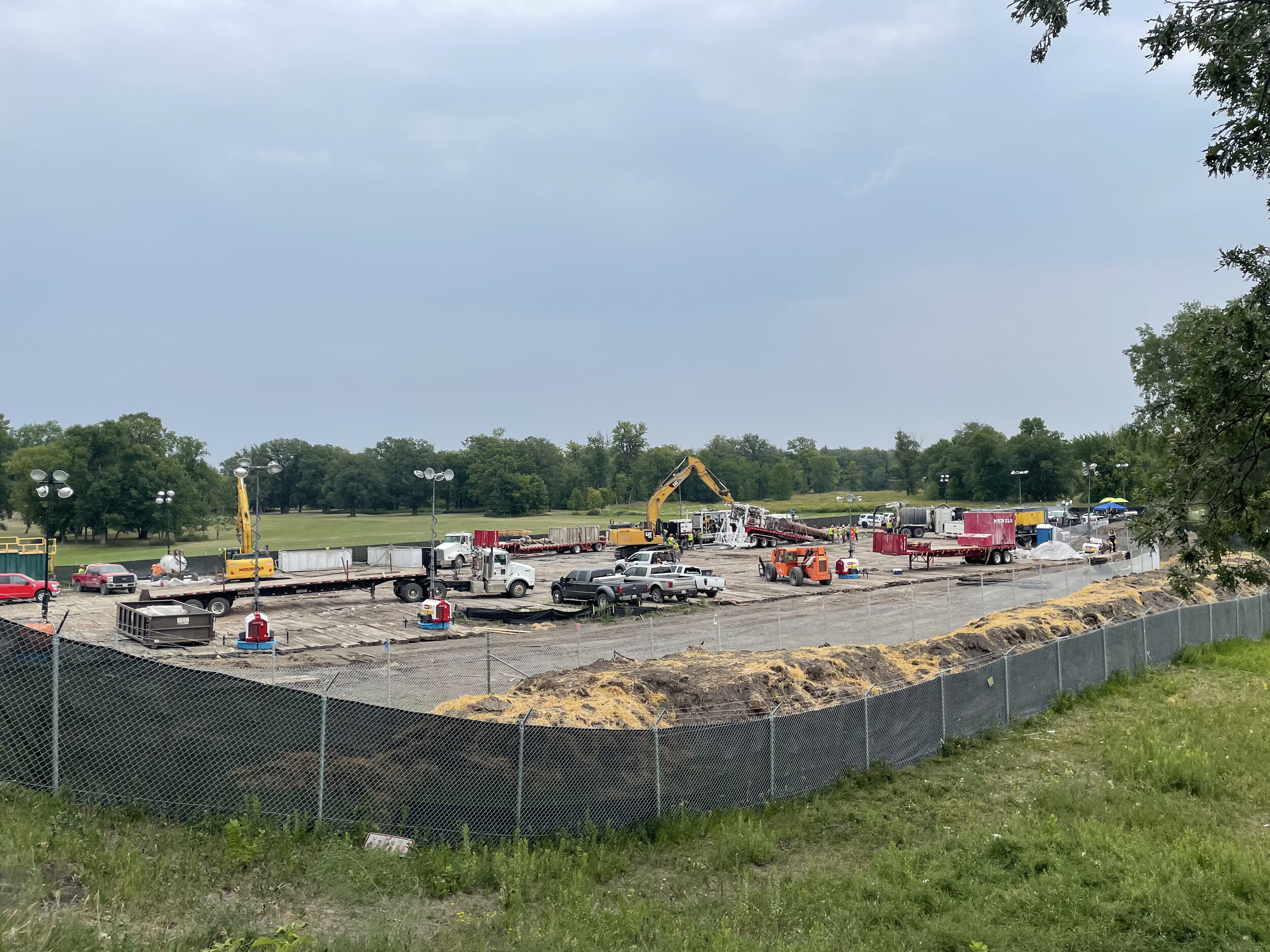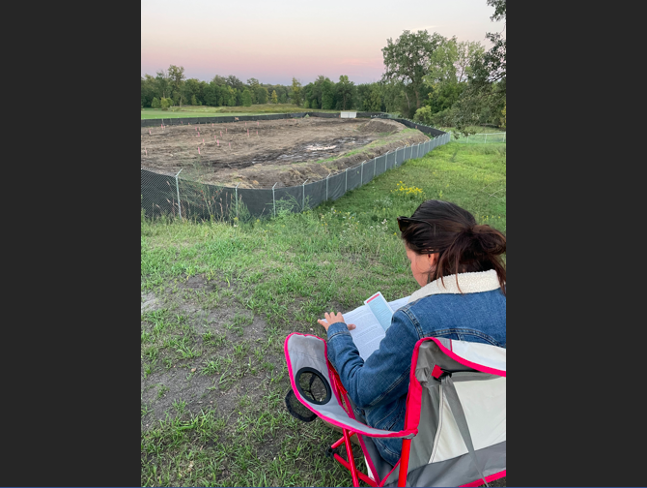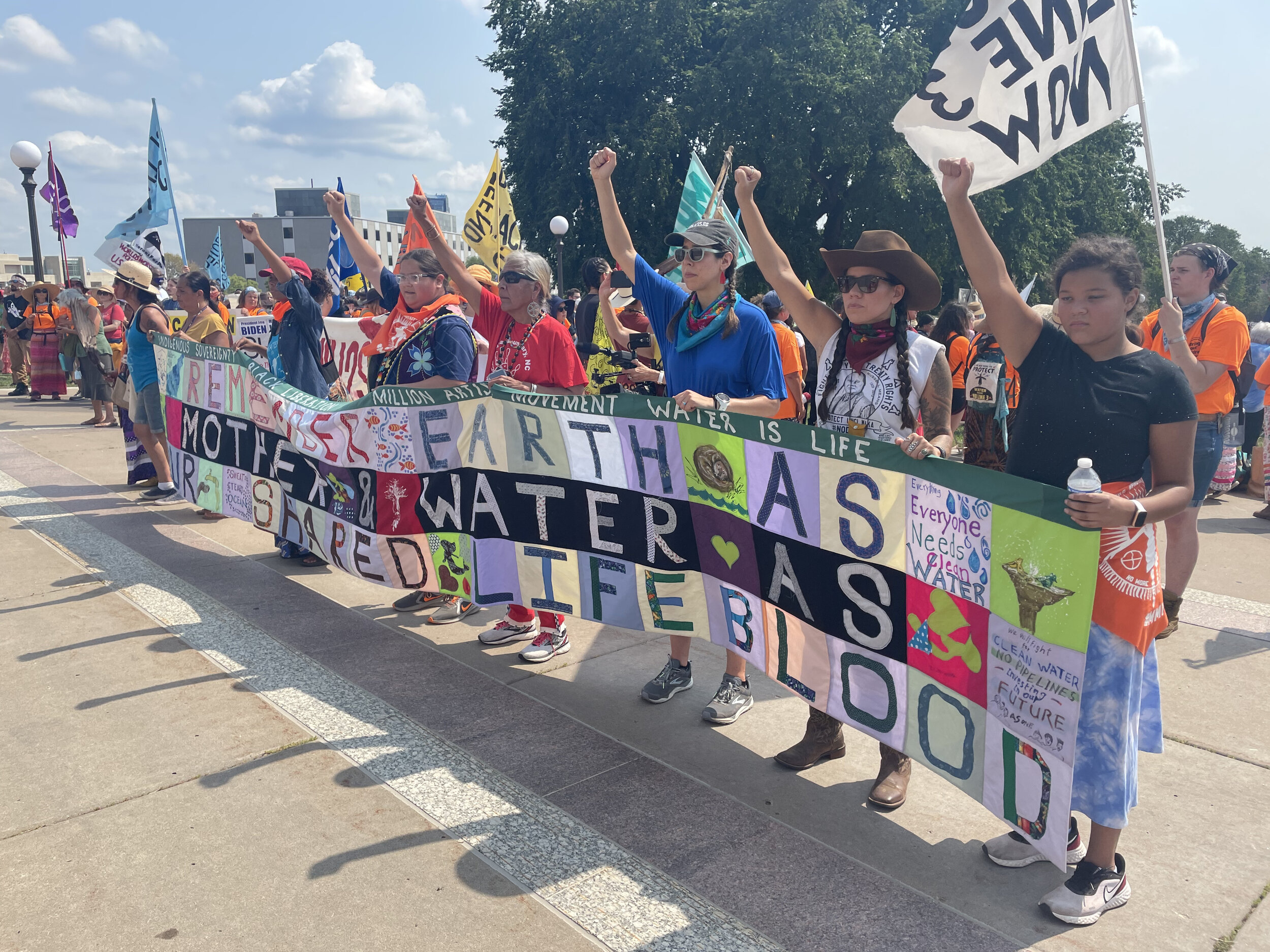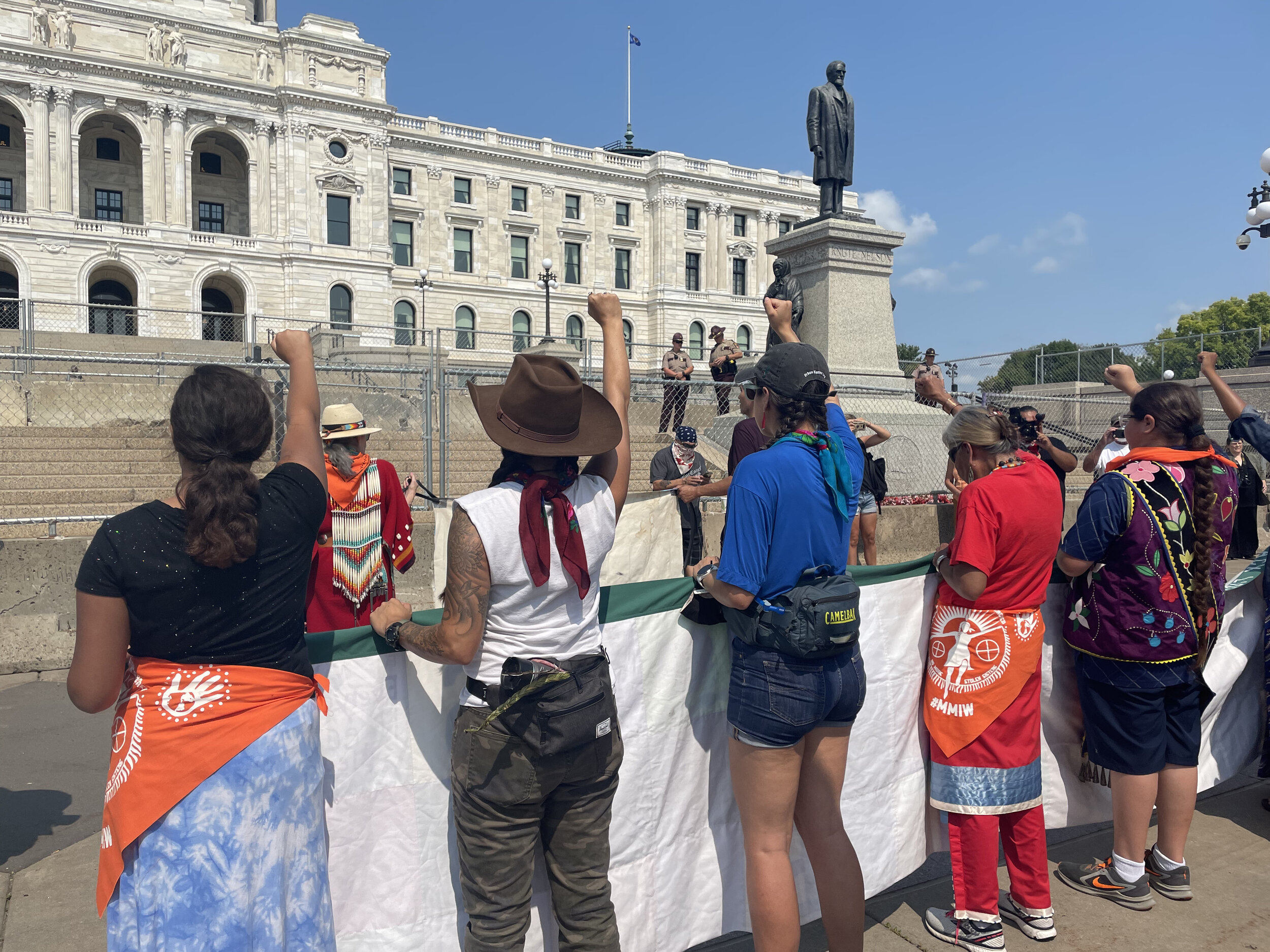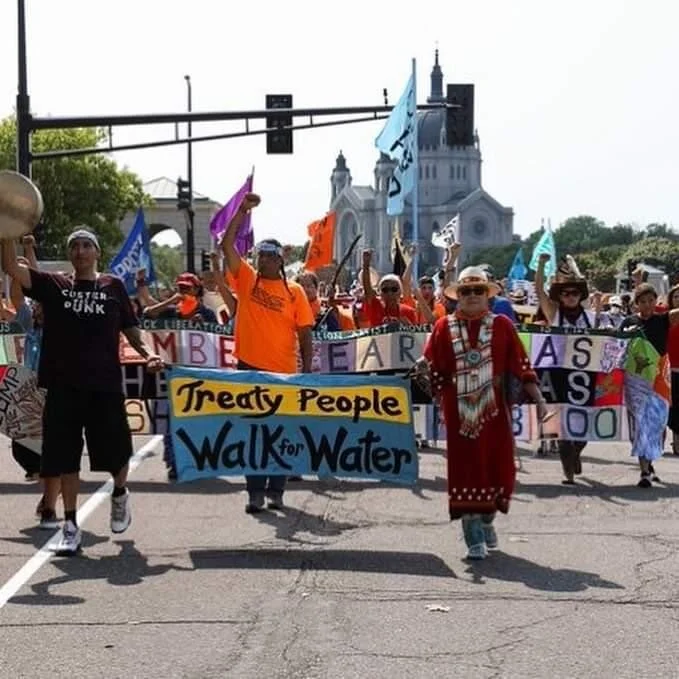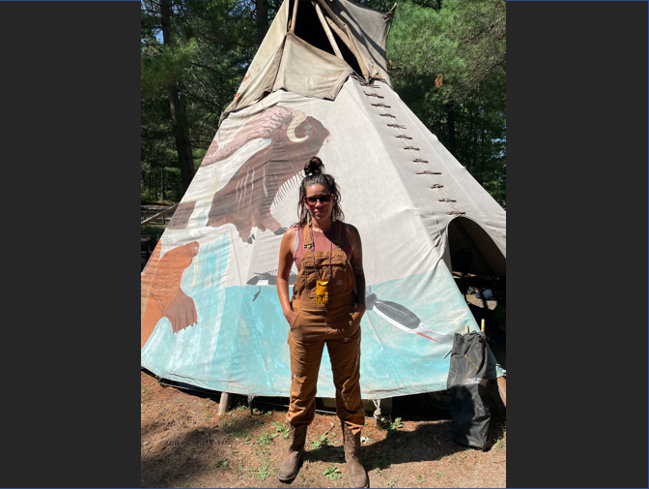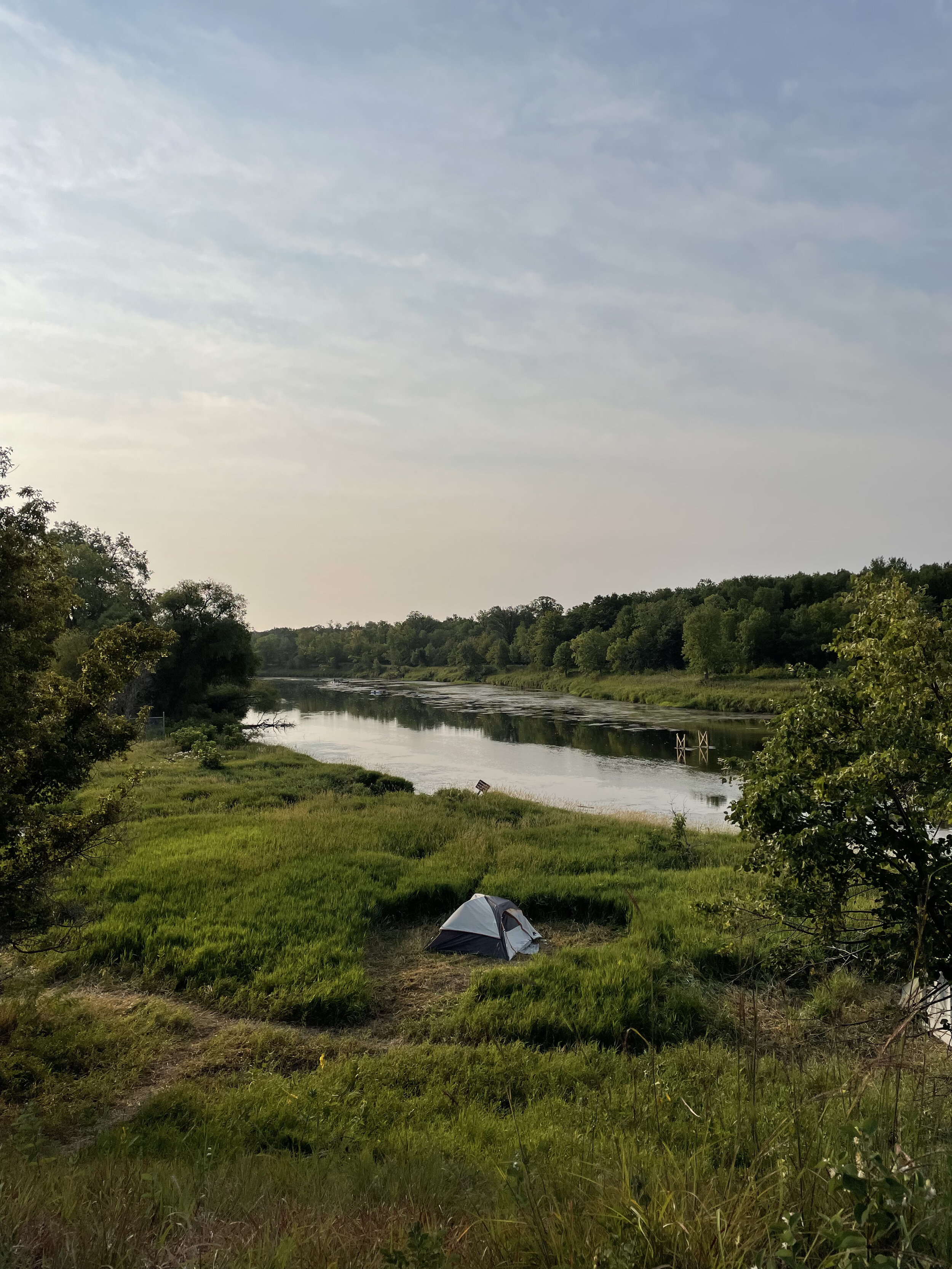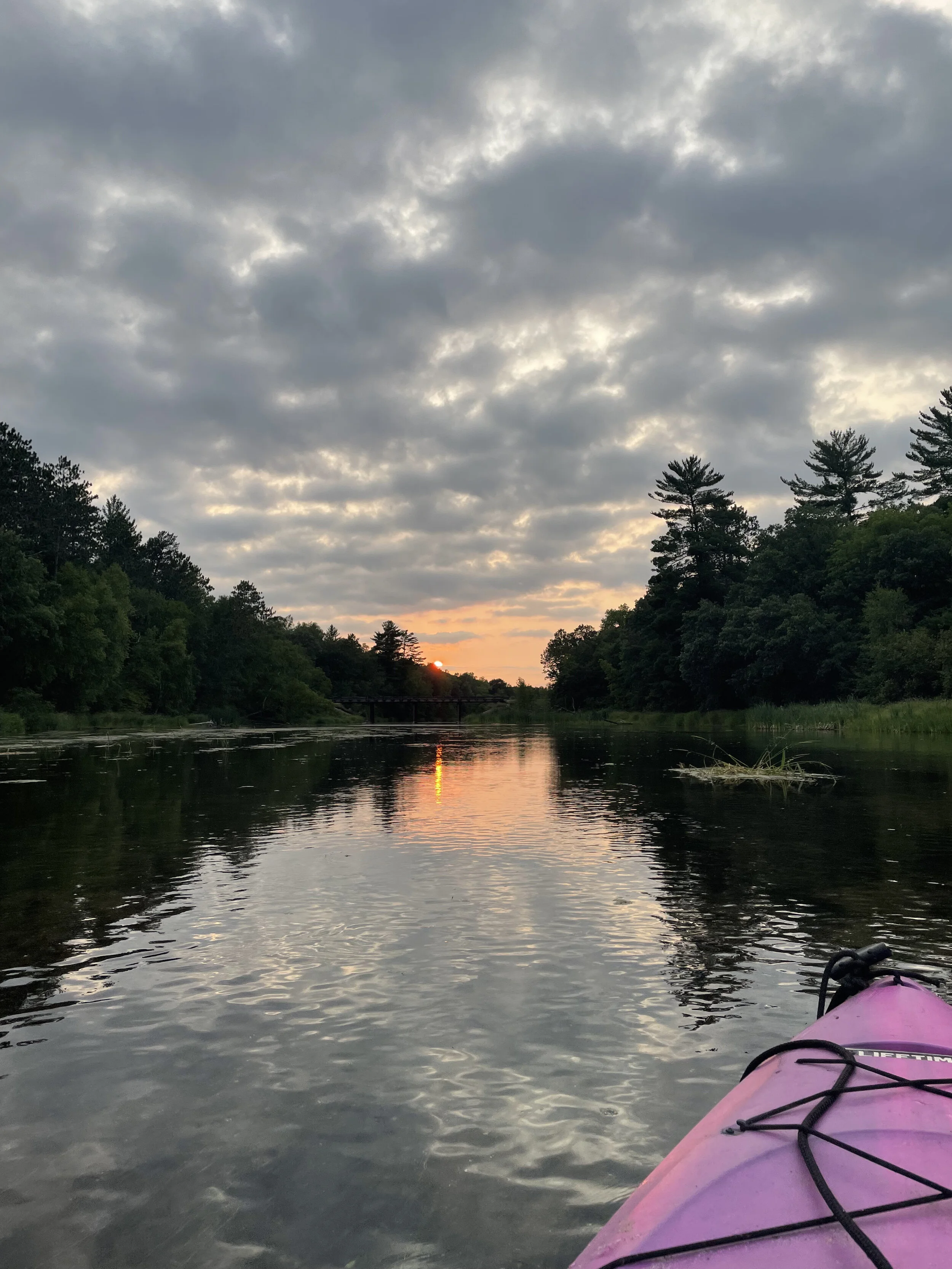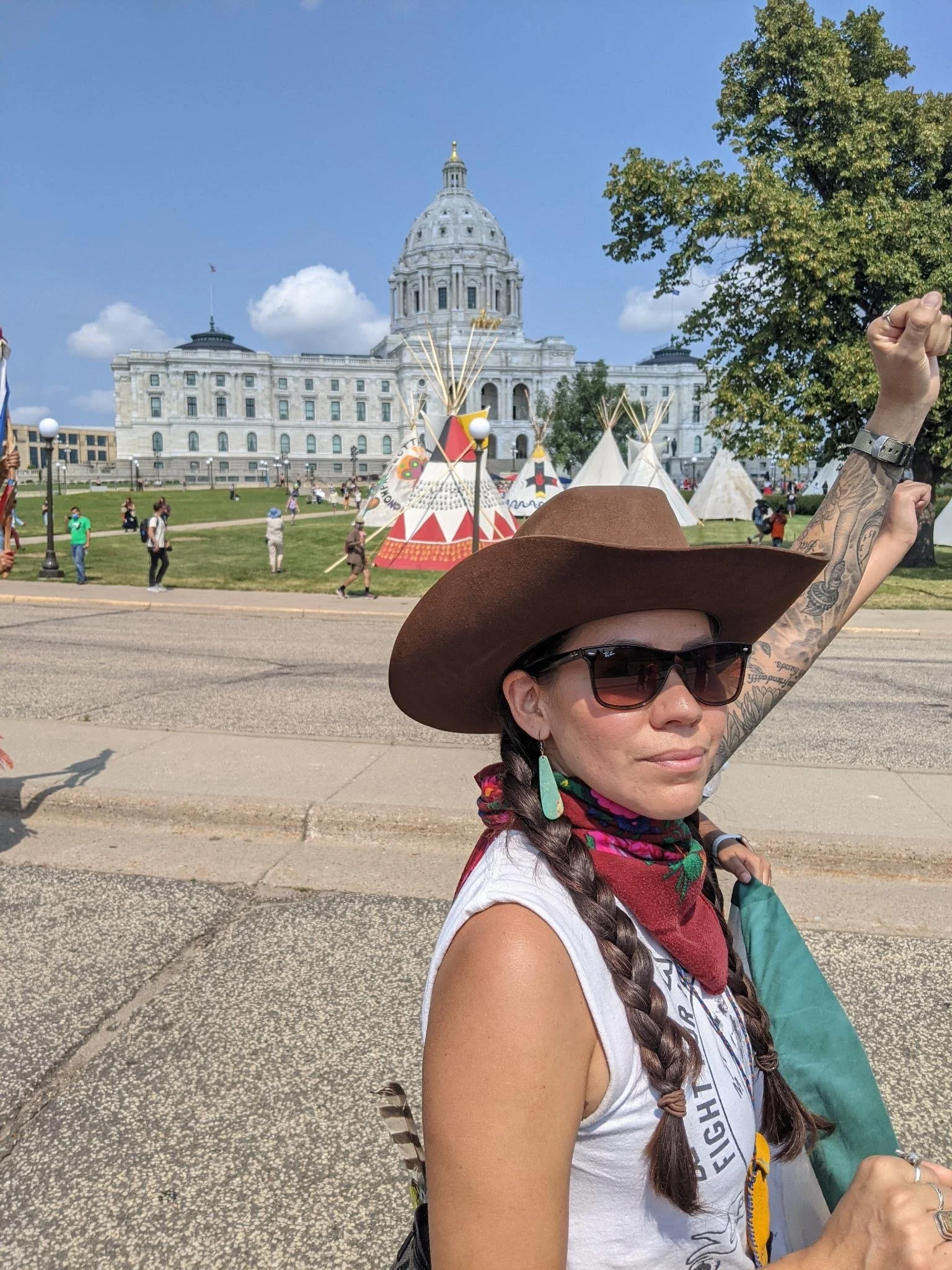I Am the River (Amber Morning Star Byars)
I Am the River
by Amber Morning Star Byars
The smoke from the sacred fire floats through the air, blanketing the camp with the smell of sage, tobacco, and cedar. I close my eyes as I lay my head against the back of my cold camp chair. I try to concentrate on the rhythm of my breath in an effort to calm my heartbeat. My muscles are tight and exhausted. My mind races with thoughts of all the emails piling up in my inbox and homework left untouched. I breathe deep, unclench my jaw, and open my eyes. I am looking at a scarred Earth, deep trenches dug by the multinational pipeline company, Enbridge. I am on the frontlines of the Line 3 pipeline resistance at the Red Lake Treaty Camp in Northern Minnesota.
Line 3 is an oil pipeline expansion constructed by Enbridge, a corporate pipeline giant responsible for the largest inland oil spill in the United States. Enbridge proposed this pipeline in 2014 to carry almost a million barrels of tar sands oil per day from Alberta, Canada to Superior, Wisconsin, crossing under the headwaters of the Mississippi and endangering the wild rice beds of the Anishinaabe.[1] This endangerment is a violation of Anishinaabe treaty rights, as explained by the Sierra Club:
In 1855, the Anishinaabe ceded 10 million acres of Minnesota’s northern lake country to the federal government but reserved the rights to hunt, fish, gather, and hold ceremony on the lands. Anishinaabe territory was included in a series of 19th-century land treaties to make peace in return for money and goods. Over time, the amount of reserved land for [N]ative tribes dwindled as the U.S. government looked to expand and capitalize off timber sales.
Now, buried beneath this resource-laden land and its troubled history lies Enbridge Line 3—a 34-inch pipeline built in the 1960s that ships crude oil from Alberta, Canada, to a terminal in Wisconsin that is adjacent to the bay of Lake Superior. Built before the National Environment Protection Act of 1970, the line didn’t require any environmental review.[2]
I have now been on the Line 3 frontlines for almost a month in an attempt to assist the Anishinaabe and their allies in the fight to protect their right to clean water and a healthy land base. I came to the frontlines not only to defend the treaties undermined by Enbridge, but to protect the treaties made between Indigenous people and the natural world. In the beginning of time, Indigenous peoples around the world made treaties with the Earth and all her beings. We agreed to take care of the animals, plants, land, water, and elements. We agreed to live in reciprocity and respect for all things related, including ourselves. I am now on the frontlines to uphold these natural agreements and responsibilities given to us by the Original Instruction, handed down by our Creator.
Frontline work like the kind I am doing is extremely difficult and it is not for everyone. It is not for the dainty or faint of heart. It is not for those who cannot live off of, and with, the land. It is not for those who cannot take direction from Indigenous leadership. It is not for those who cannot check their privileges at the camp gate and put the needs of the community first, front, and center. It takes a certain type of person to be able to make the sacrifices involved. As land defenders and water protectors, we leave behind our homes, jobs, families, educations, and responsibilities to do this work. To come to the frontlines, I left behind my elderly mother whom I care for, my animals, my work as a full-time law student, and my job as a legal research assistant. Like many others, I dropped everything. We do this because we are tired of seeing our Mother suffer under the weight of white supremacy, patriarchy, greed, and capitalism. We do this work because we know we can and because it is hard, strengthening, and beautiful. And beautiful it is.
Yesterday morning I watched as a bald eagle circled over the river, diving to catch a fish. The fat walleye swimming below shimmered in the early morning light. It was first light, at around 6:00 a.m. I would guess. I had just woken up and was feeling around in my tent for my turtle shell rattle and coffee thermos when I heard the unmistakable screech overhead. I scrambled out of my tent just in time to see the eagle dive into the water, talons extended, in a glorious attempt at breakfast. It missed the fish, and I empathetically shared its disappointment. I was reminded to be thankful for the nourishment I would receive that morning.
Moments like this, with the eagle, occur daily at camp. Whether it’s when the beloved camp dog, Pahin, snuggles up against my leg or when a school of minnows swim up to my kayak as I gently paddle my way downriver, I am constantly reminded that in this place and all places, I am not separate from nature. I am the Earth, and the Earth is me. Camp is a reminder of the way we should all be living. We are not meant to sit in an office eight hours a day, staring at a screen, eating food that will rot our bodies and spirits. We should be out on the river and sleeping on the earth. We should be working with the land, preparing food for one another, telling stories, and singing songs around a fire. White culture would have us embarrassed at this notion – it’s some real “kumbaya” shit, I know. But I don’t care because to me, it’s the only real way to live. The rivers, lakes, land, animals, plants, stars, wind, and rain are all very real to me. Emails don’t feel real. Neither does money, nice cars and clothes, or the western image of success. Institutional education does not feel real to me. Everything I need to learn is right outside my door. All the best teachers exist in the natural realm. Sadly, most days we neglect to attend the lessons of nature, neglecting our ancestral ways of living for a modern and “civilized” way of life. I don’t shame us for it, because it’s by no fault of our own that we have been forced into this way of life. The main goal of colonization and globalism is to create mass dependency on the systems of capitalism created by white supremacy. Colonization has purposefully diminished our connection to the Great Mother. Thankfully, some of us have not forgotten our ancestral ways and connectedness.
My remembrance of these ways was furthered when a young woman from Alaska arrived at camp one day. She came bearing a song to sing during one of our daily ceremonies, in which the women from camp gather by the river each morning to sing songs of gratitude to greet the day. I shook my turtle shell rattle, and she gently stomped her foot to the beat, and together we sang the words:
I am the River
I am the Sea
I am the Salmon
The Wild Osprey
I am the Wind, in the Aspen Trees
I am You
And You are Me
The words of this woman’s song helped to remind me that our knowledge of connection and relation has not been lost completely. Indigenous peoples around the world are fighting to maintain it. For us, resistance camps like Line 3, Standing Rock, and Oak Flat are not mere movements for social and environmental justice, they are a way of life. We have been fighting for our land, water, and people for 500 years and we will never stop fighting. This must now be a way of life for all people if we are to survive the atrocities happening to our Earth. All people must fight. All people must reconnect. All people must remember that without reciprocity, we create imbalance. To restore balance, we must remember that we are the river, and we are the sea. I am you and you are me. We are all related.
This article is dedicated to all the brave land defenders and water protectors holding space on frontlines around the world. May the Ancestors bless and hold you.
###
Listen to Amber’s recording of this article, from the frontlines.
References
[1] See https://www.stopline3.org/#intro for more information.
[2] See https://www.sierraclub.org/sierra/proposed-pipeline-undermines-anishinaabe-treaty-rights
###
Amber Morning Star Byars is an enrolled member of the Choctaw Nation of Oklahoma and a descendant of the Chickasaw Nation. She has a BA in Indigenous Liberal Studies and an AFA in Studio Art from the Institute of American Indian Arts. She will graduate from the University of Arizona College of Law in 2022. Follow Amber on Twitter. Learn more about Line 3 and land back. Support StopLine3. This piece is part of our Fall 2021 collection, Sacred Relationship, exploring the Native American sense of sacred relationship with Earth’s other living creatures.

